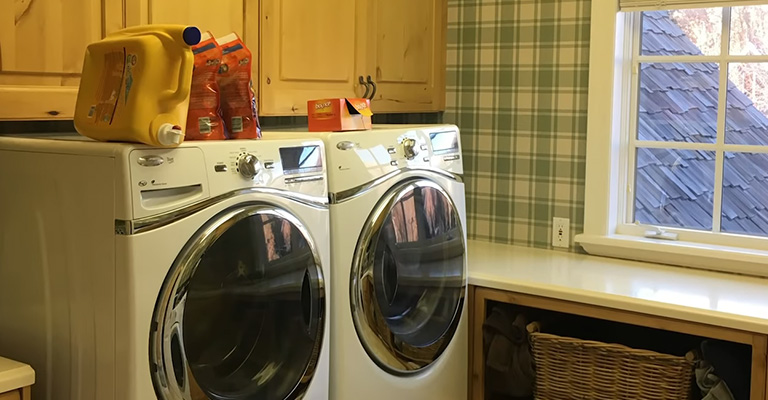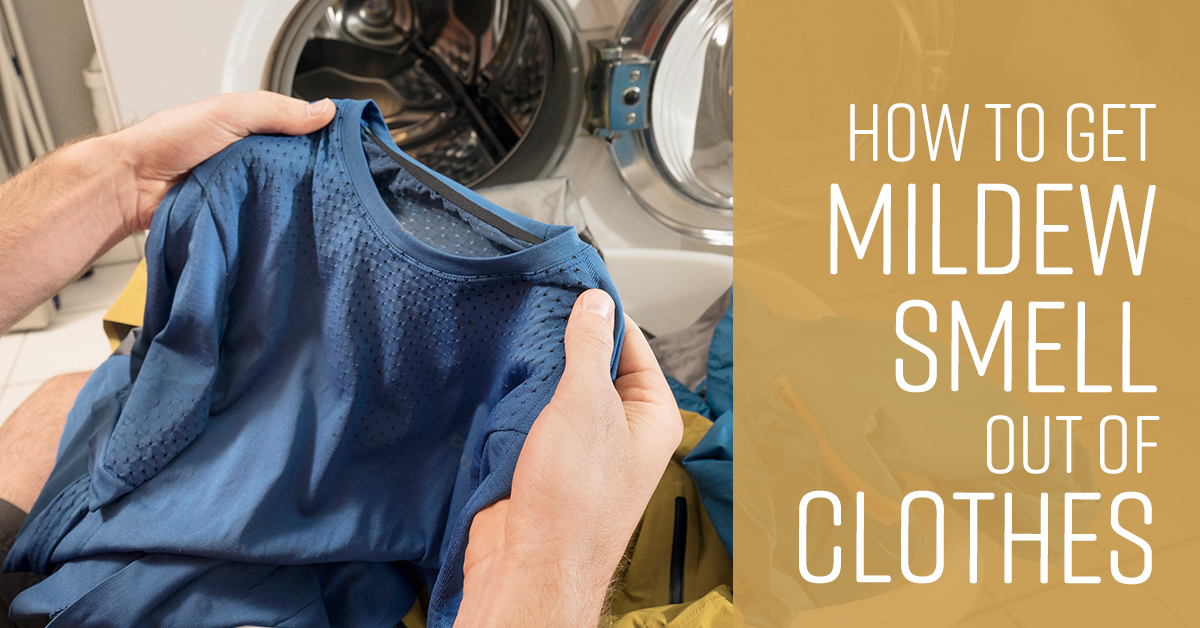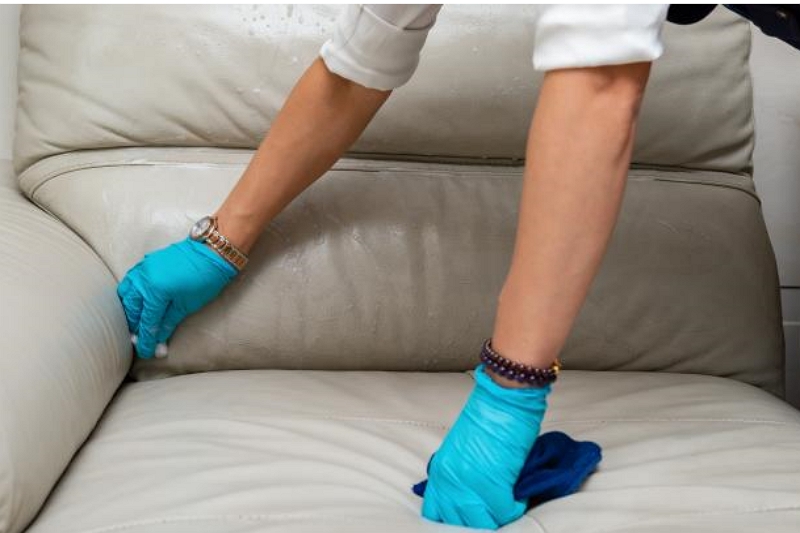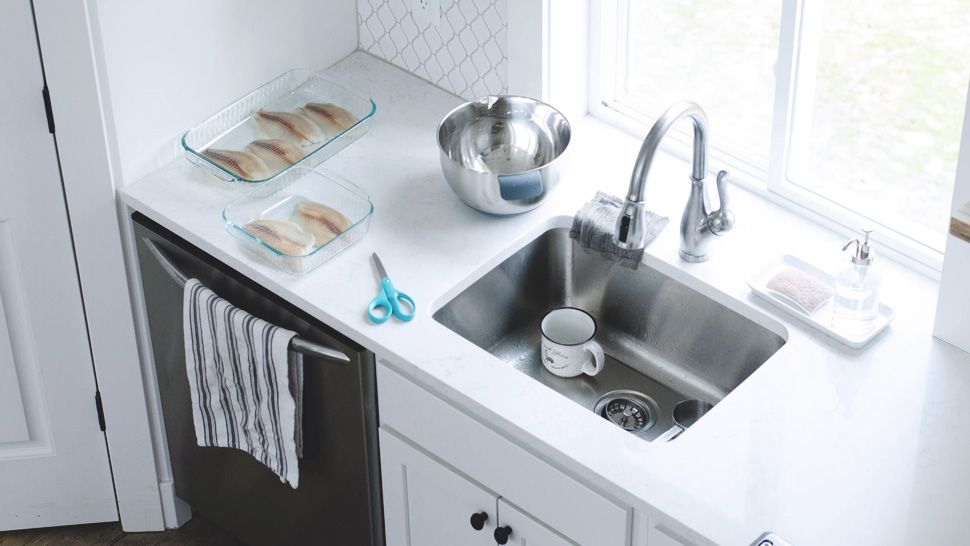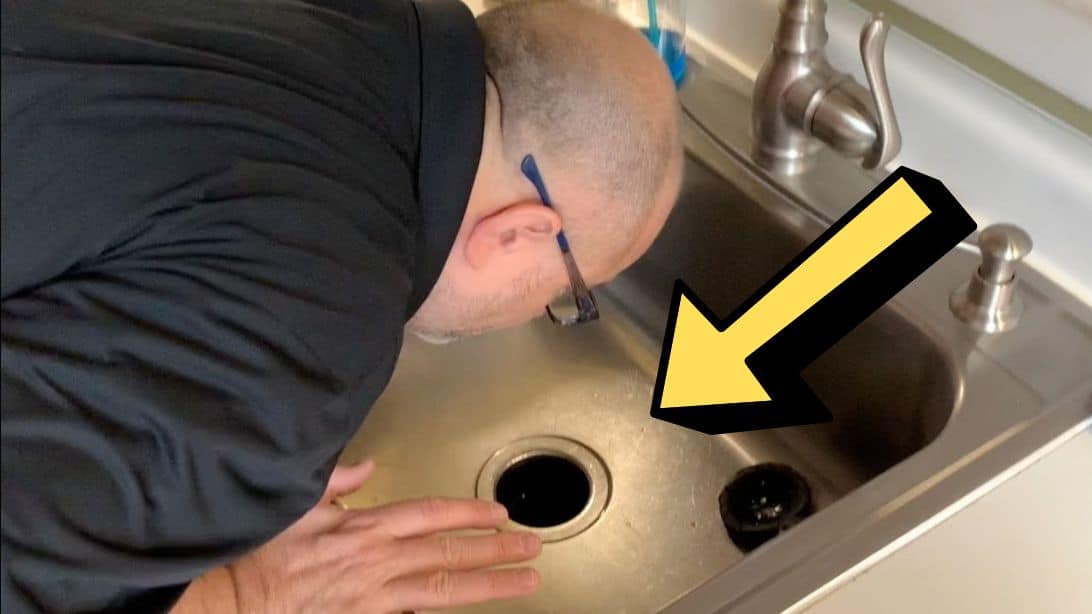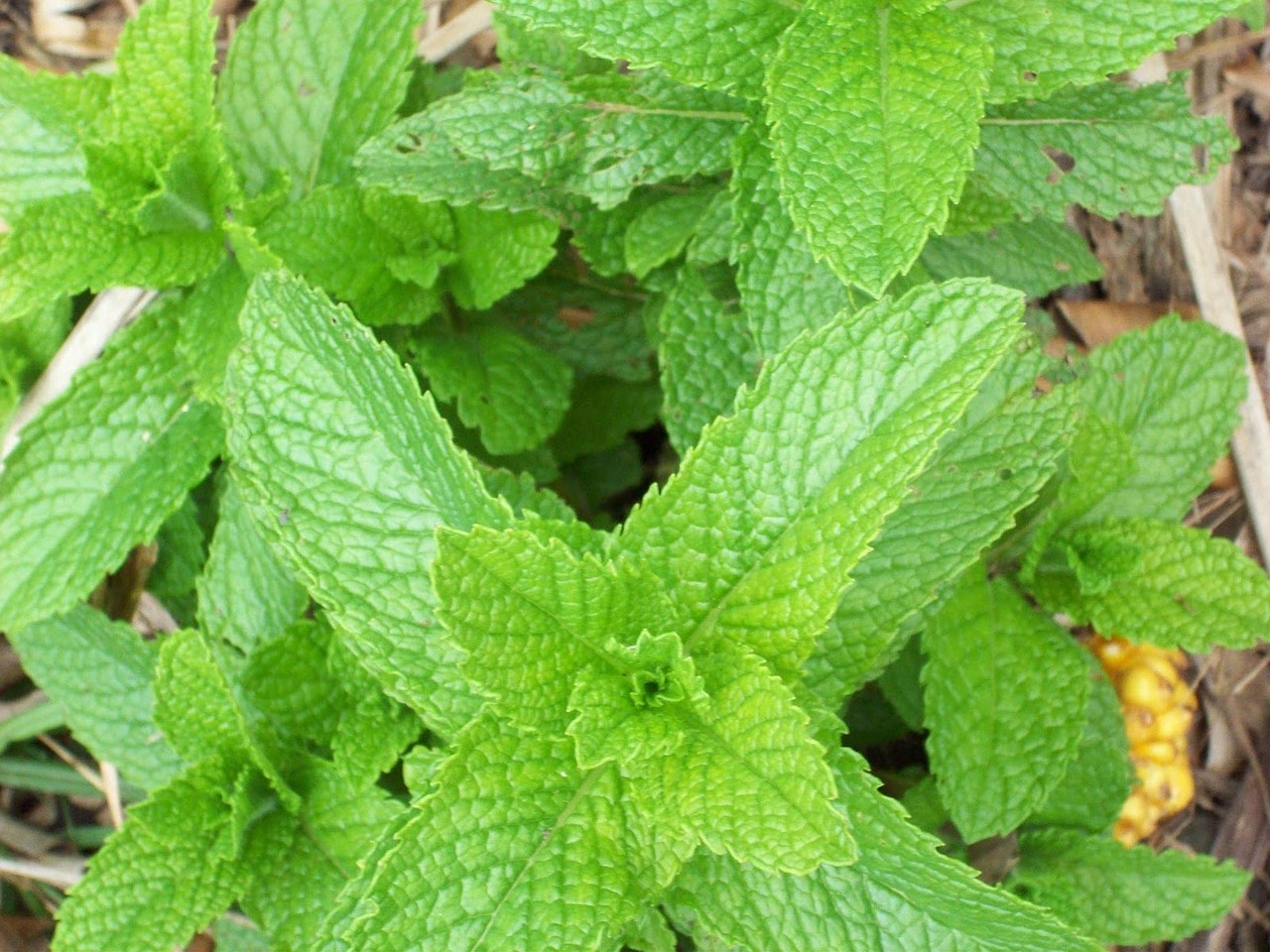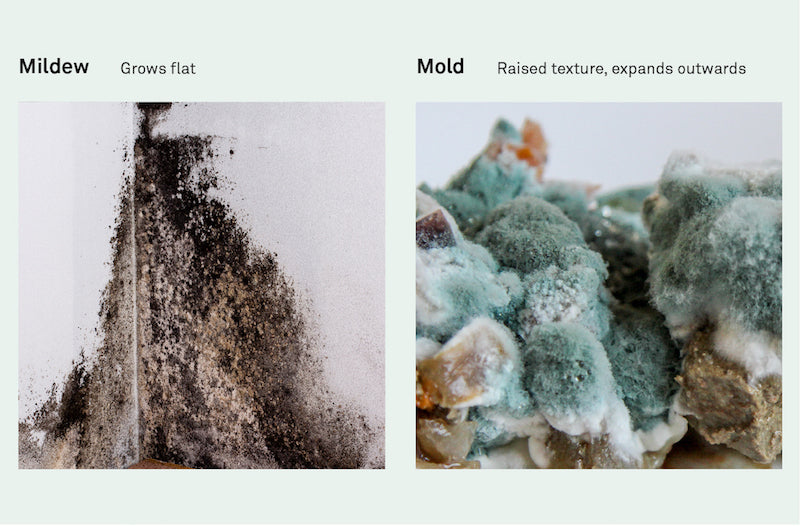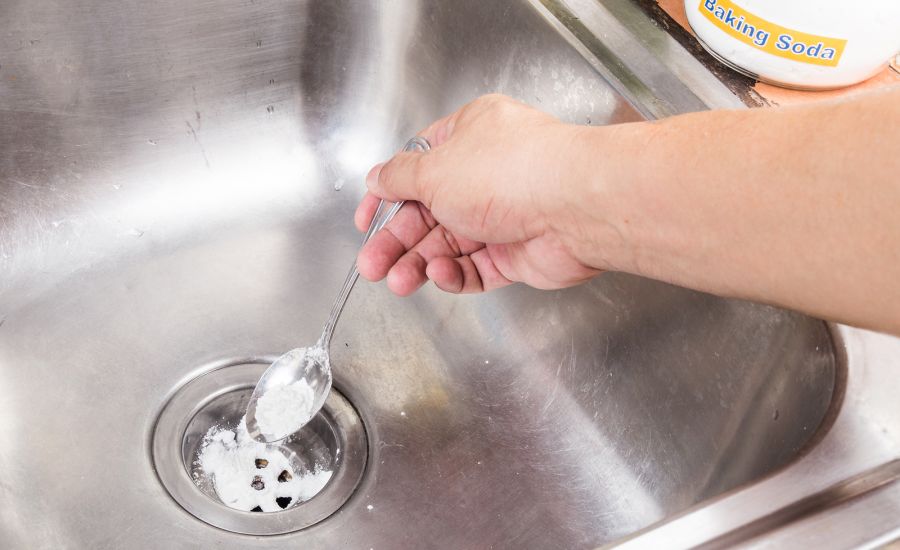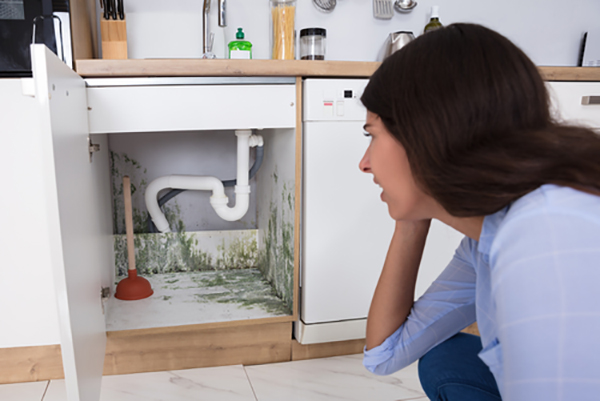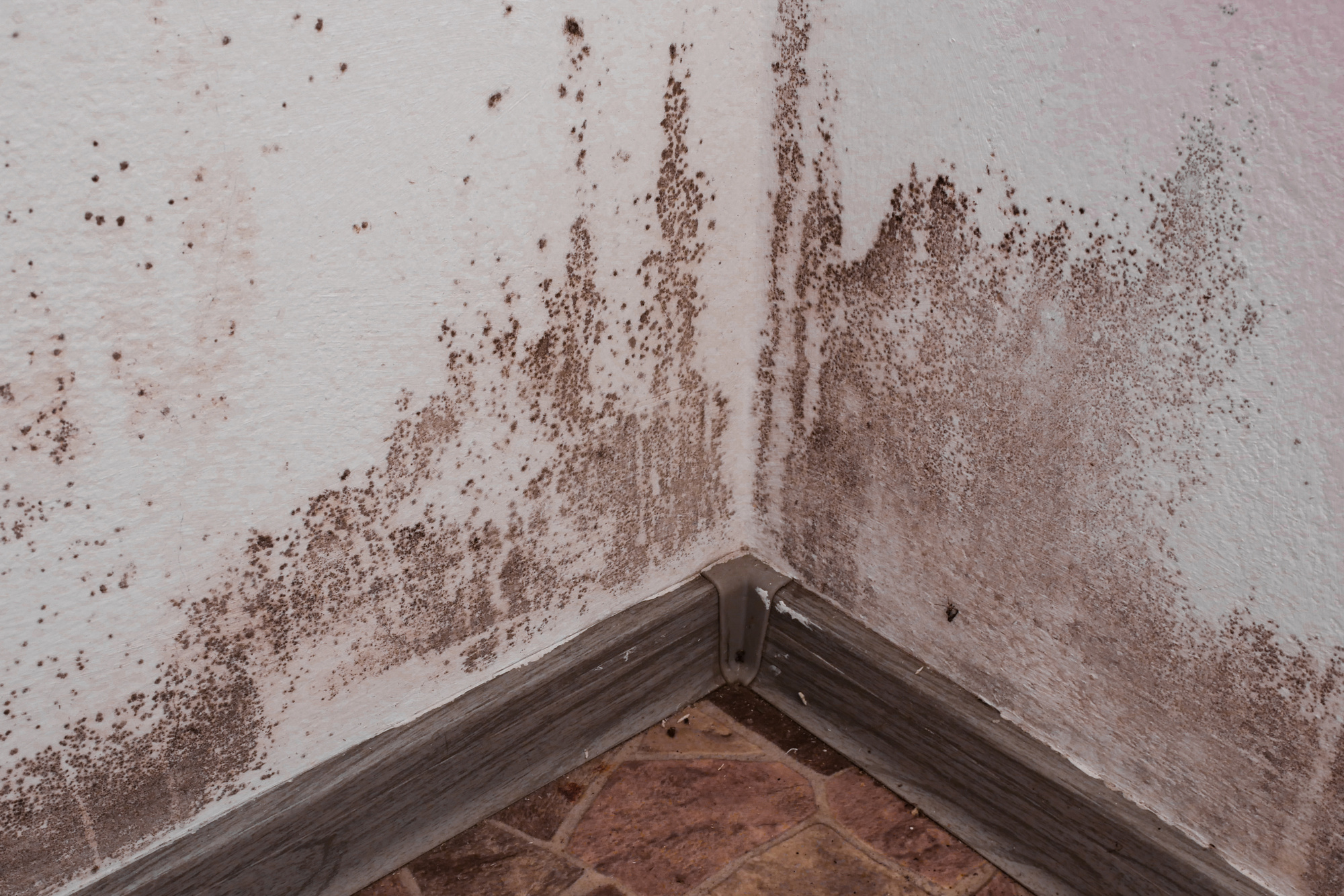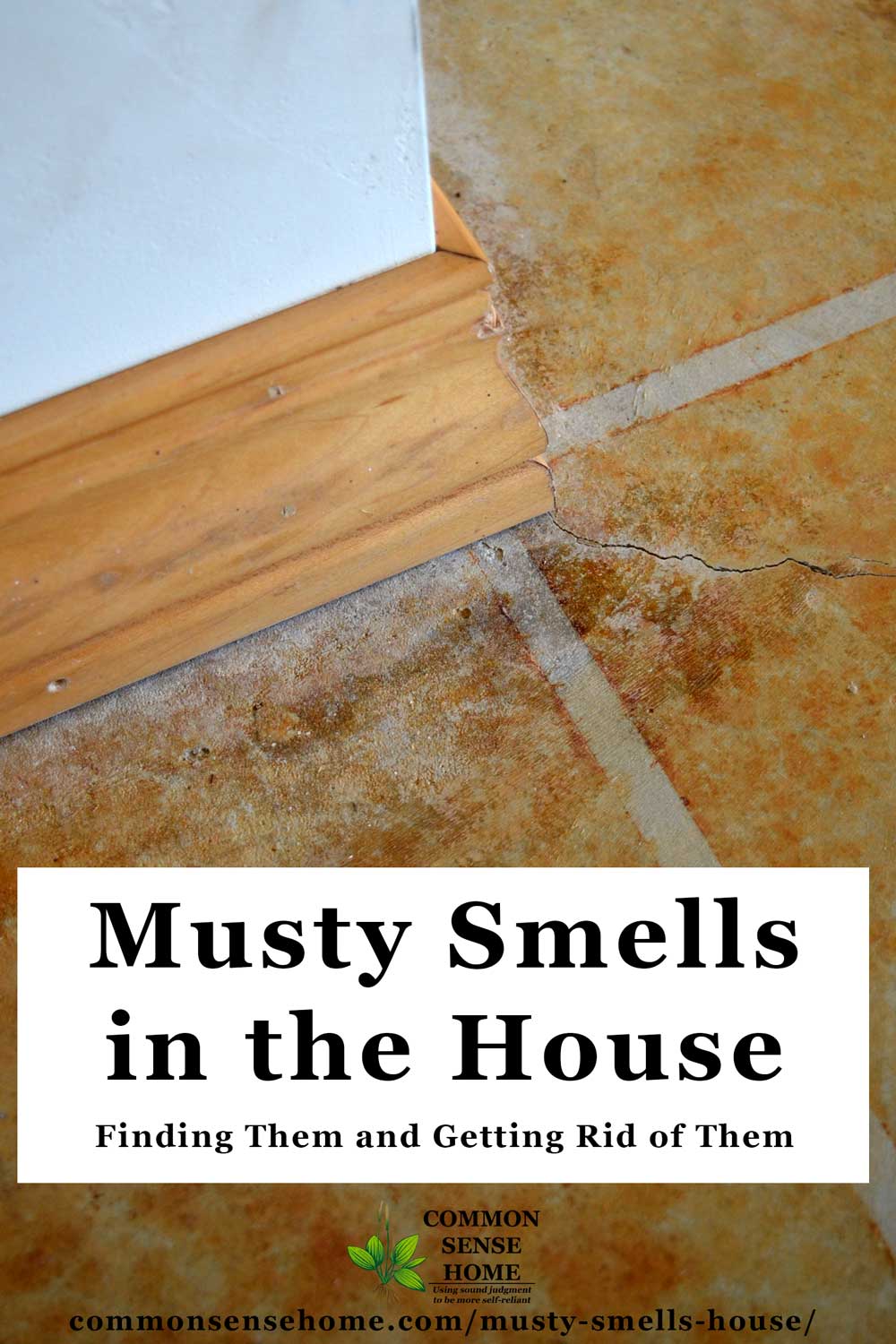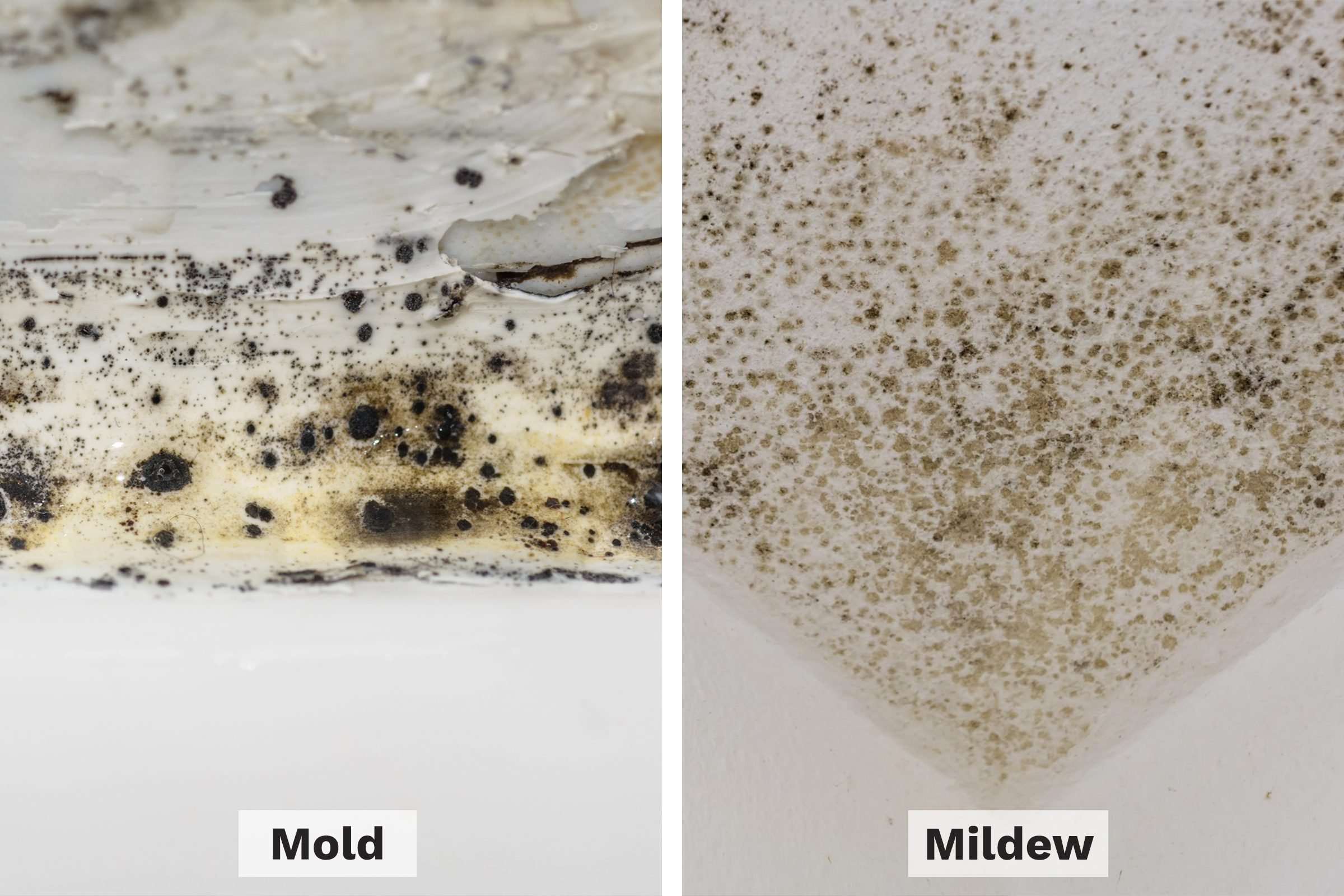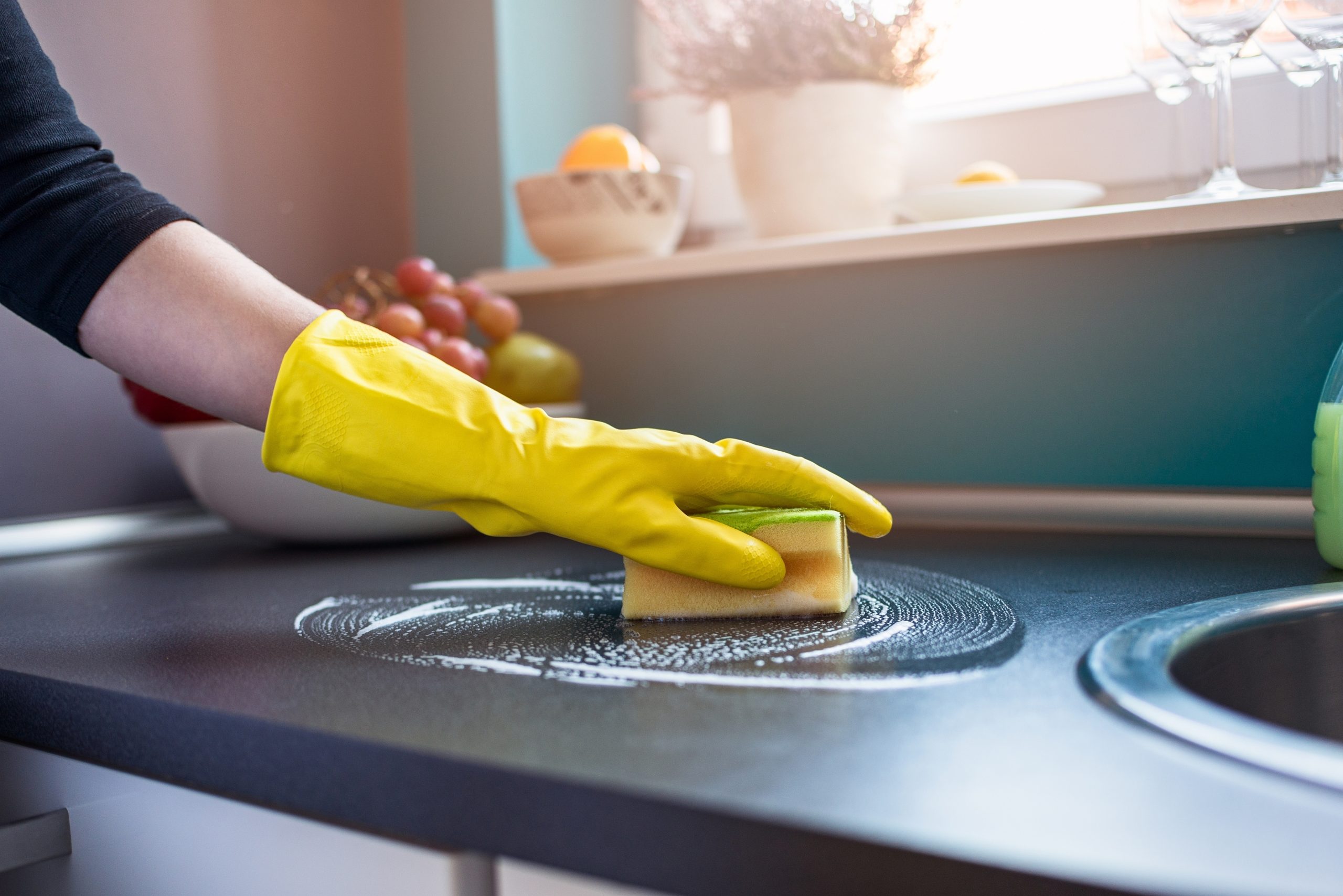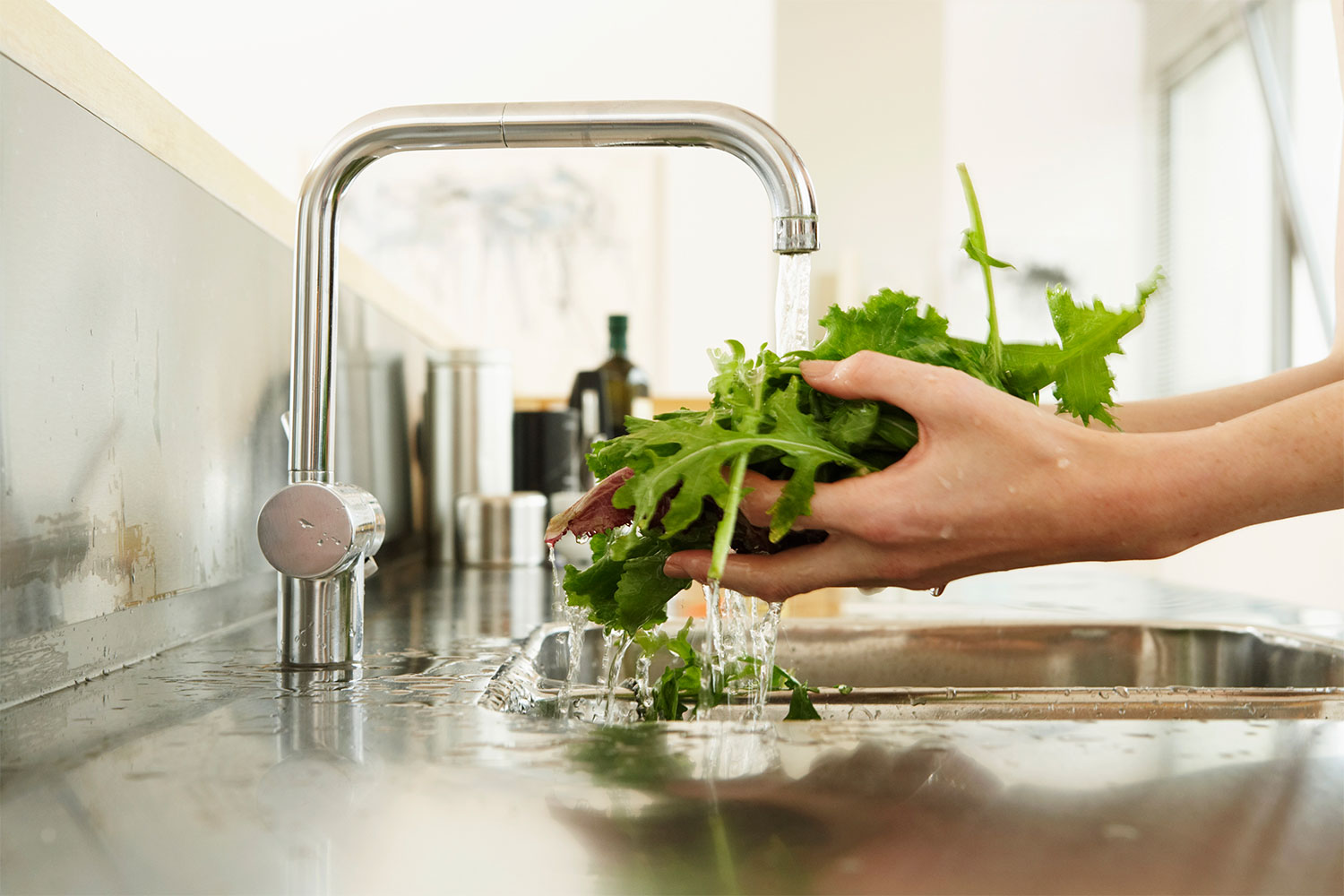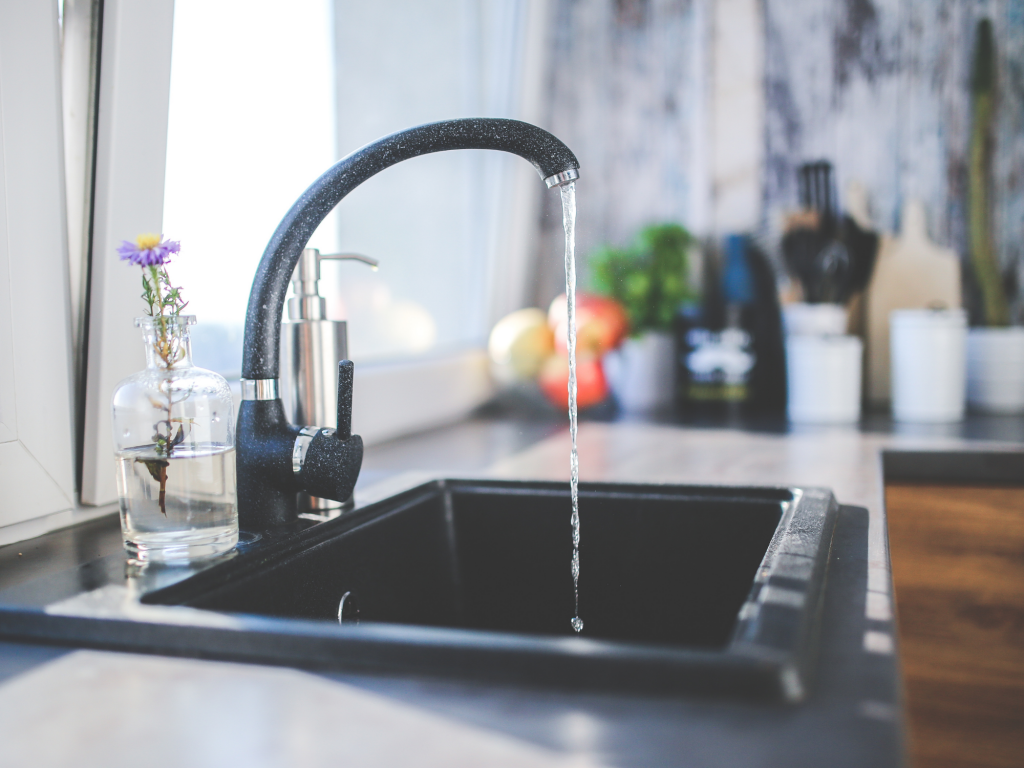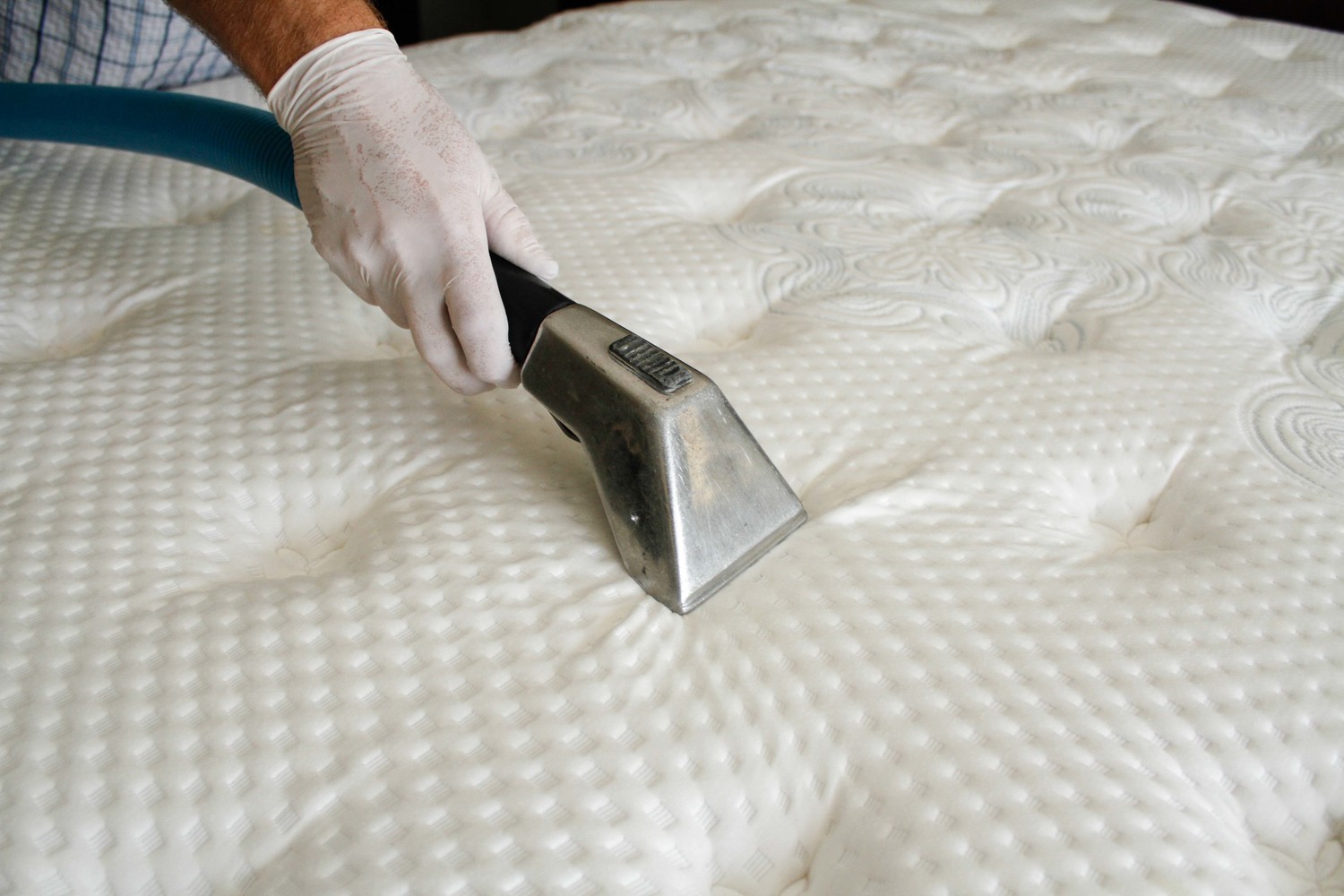If your kitchen sink has a persistent mildew smell, you're not alone. This is a common issue that can be caused by a variety of factors. One of the main culprits is food particles that get stuck in the drain and start to decompose, creating a musty odor. Another common cause is a build-up of bacteria and mold in the pipes. No matter the cause, it's essential to address the issue and find a solution to get rid of the unpleasant smell. To combat a smelly kitchen sink, start by pouring boiling water down the drain to help break down any food particles stuck in the pipes. You can also try using a mixture of baking soda and vinegar to create a natural cleaning solution. Simply pour half a cup of baking soda down the drain, followed by a cup of vinegar. Let it sit for a few minutes before flushing it out with hot water. This will not only help get rid of the smell but also clean and unclog your pipes.1. Causes and Solutions for a Smelly Kitchen Sink
If you've tried the boiling water and baking soda and vinegar method but are still dealing with a mildew smell in your kitchen sink, it's time to get more specific. You may need to target the specific area where the smell is coming from. If it seems to be coming from the drain, try using a drain snake to remove any debris or clogs. You can also use a mixture of lemon juice and salt to scrub the inside of the drain and eliminate any lingering smells. If the smell is coming from the garbage disposal, try grinding up some citrus peels or ice cubes to freshen it up. You can also pour a cup of white vinegar down the disposal and let it sit for a few minutes before running hot water to flush it out. These simple methods can help get rid of the mildew smell and leave your kitchen sink smelling fresh and clean.2. How to Get Rid of a Mildew Smell in Your Kitchen Sink
If you're dealing with a persistent mildew smell in your kitchen sink, it's important to take preventative measures to keep it from coming back. One simple way to do this is by regularly running hot water down your drain. This will help flush out any food particles and keep your pipes clean. You can also use a commercial drain cleaner once a month to keep your pipes clear and prevent any build-up of bacteria and mold. Another helpful tip is to use a sink strainer to catch any food particles before they go down the drain. This will not only help prevent clogs but also reduce the chances of a smelly kitchen sink.3. Tips for Eliminating Mildew Odors in Your Kitchen Sink
In addition to regular maintenance, it's important to deep clean and deodorize your kitchen sink every once in a while. This will help remove any built-up grime and bacteria that could be contributing to the mildew smell. One effective method is to sprinkle baking soda all over your sink and then spray it with a mixture of water and white vinegar. Let it sit for a few minutes before scrubbing and rinsing with hot water. For tough stains or build-up, you can also use a mixture of lemon juice and cream of tartar to create a powerful cleaning solution. Simply mix equal parts of each and use a scrub brush to clean your sink. This method not only helps get rid of the smell but also leaves your sink sparkling clean.4. The Best Ways to Clean and Deodorize Your Kitchen Sink
If you prefer to use natural and chemical-free methods for cleaning and deodorizing your kitchen sink, there are plenty of options to choose from. One popular method is to use a mixture of hydrogen peroxide and baking soda to create a paste. Apply the paste to your sink and let it sit for a few minutes before scrubbing and rinsing. This will not only help get rid of the mildew smell but also disinfect your sink. You can also use essential oils, such as tea tree oil or peppermint oil, to create a natural cleaning solution. Mix a few drops of the oil with a cup of water and use it to wipe down your sink. Not only will this help eliminate any odors, but it will also leave a fresh and pleasant scent.5. Natural Remedies for Removing Mildew Smells from Your Kitchen Sink
Prevention is key when it comes to keeping your kitchen sink free from mildew smells. One important tip is to never pour grease or oil down your drain, as this can lead to clogs and build-up. Instead, pour it into a container and dispose of it in the trash. You should also make sure to run cold water down the drain while using your garbage disposal to help prevent food particles from getting stuck. To keep your sink smelling fresh, you can also try using a garbage disposal cleaner once a month. Simply drop one of these tablets down your disposal and run hot water for a few seconds. This will not only help eliminate any odors but also clean and deodorize your garbage disposal.6. Preventing Mildew Smells in Your Kitchen Sink: Tips and Tricks
If you're still struggling with a mildew smell in your kitchen sink, it's important to identify the root cause and address it accordingly. As mentioned earlier, the most common cause is food particles and debris getting stuck in the drain. To fix this, make sure to regularly clean and unclog your drain using the methods mentioned in the previous sections. Another common cause is a leak in the pipes, which can lead to a build-up of mold and bacteria. If you suspect a leak, it's important to call a plumber to fix it. You should also check the seal around your sink to make sure there are no gaps or cracks that could be causing the smell.7. Common Causes of a Mildew Smell in Your Kitchen Sink and How to Fix Them
If you've tried all the methods mentioned above but are still dealing with a persistent mildew smell in your kitchen sink, it may be time for a deep clean. This involves removing any items from your sink, such as dishes or sponges, and thoroughly cleaning and disinfecting the entire area. You can use a mixture of dish soap and warm water to clean the sink, followed by a disinfectant spray. Make sure to scrub the drain and garbage disposal as well. You can also use a mixture of hydrogen peroxide and water to disinfect your sink. Finish off by rinsing with hot water and drying with a clean cloth.8. How to Deep Clean Your Kitchen Sink to Get Rid of Mildew Odors
If you're on a budget, there are plenty of DIY solutions for getting rid of a mildew smell in your kitchen sink. One simple method is to use a mixture of vinegar and baking soda to create a powerful cleaning and deodorizing solution. You can also try using lemon juice and salt, as mentioned earlier, or a combination of lemon juice and borax. If the smell is coming from your garbage disposal, you can try grinding up some citrus peels or ice cubes. You can also use a mixture of dish soap and warm water to clean and deodorize your disposal.9. DIY Solutions for a Smelly Kitchen Sink
If all else fails and you're still dealing with a persistent mildew smell in your kitchen sink, it may be time to call in the professionals. A plumber can inspect your pipes and fix any issues that may be causing the smell. They can also use powerful cleaning solutions and techniques to eliminate the odor and prevent it from coming back. You can also hire a professional cleaning service to deep clean and deodorize your kitchen sink. They have the knowledge and experience to tackle tough odors and leave your sink smelling fresh and clean.10. Professional Tips for Eliminating Mildew Smells in Your Kitchen Sink
How to Get Rid of the Mildew Smell in Your Kitchen Sink
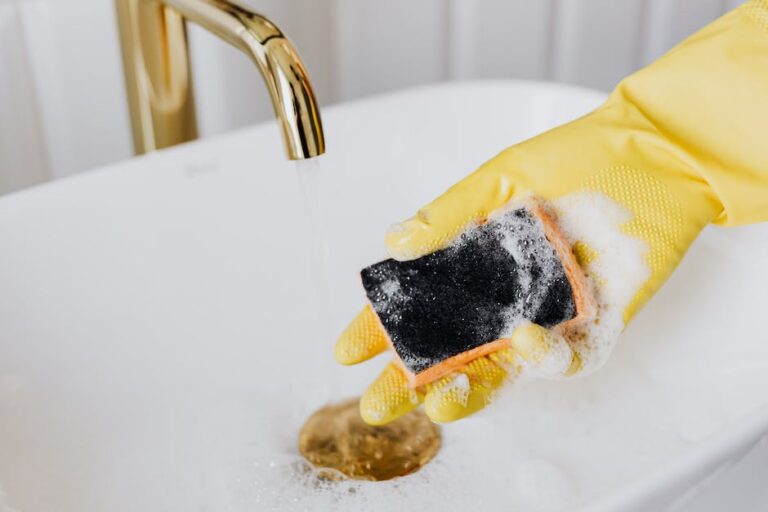
Why Does Your Kitchen Sink Smell Like Mildew?
 If you've noticed a foul, musty odor coming from your kitchen sink, chances are you have a mildew problem. Mildew is a type of mold that thrives in warm, damp environments – making your kitchen sink the perfect breeding ground. This unpleasant smell can be caused by a variety of factors, including food residue, moisture buildup, and lack of proper ventilation. Luckily, there are several simple and effective solutions to get rid of the mildew smell in your kitchen sink.
If you've noticed a foul, musty odor coming from your kitchen sink, chances are you have a mildew problem. Mildew is a type of mold that thrives in warm, damp environments – making your kitchen sink the perfect breeding ground. This unpleasant smell can be caused by a variety of factors, including food residue, moisture buildup, and lack of proper ventilation. Luckily, there are several simple and effective solutions to get rid of the mildew smell in your kitchen sink.
Step 1: Clean Your Sink Thoroughly
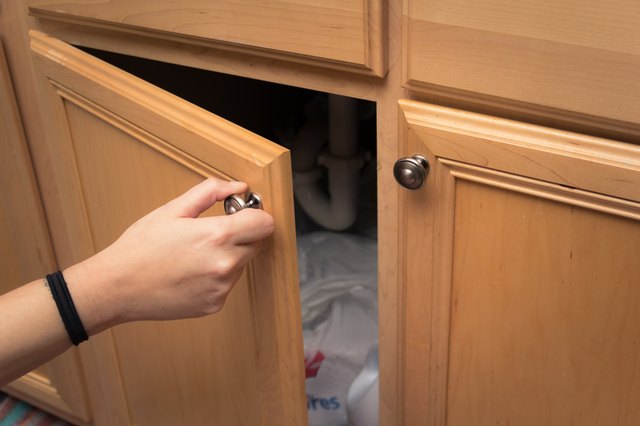 The first step to getting rid of the mildew smell in your kitchen sink is to give it a thorough cleaning. Use a mixture of hot water and
baking soda
to scrub the sink and remove any food residue or build-up.
Vinegar
is also a great natural cleaner that can help eliminate the musty smell. Pour a cup of vinegar down the drain and let it sit for 15 minutes before rinsing with hot water.
The first step to getting rid of the mildew smell in your kitchen sink is to give it a thorough cleaning. Use a mixture of hot water and
baking soda
to scrub the sink and remove any food residue or build-up.
Vinegar
is also a great natural cleaner that can help eliminate the musty smell. Pour a cup of vinegar down the drain and let it sit for 15 minutes before rinsing with hot water.
Step 2: Check for Leaks
 Excess moisture is a major contributor to mildew growth. Check your sink and pipes for any leaks or drips that could be causing water to accumulate and create a breeding ground for mold. If you find any leaks, be sure to fix them as soon as possible to prevent further mildew growth.
Excess moisture is a major contributor to mildew growth. Check your sink and pipes for any leaks or drips that could be causing water to accumulate and create a breeding ground for mold. If you find any leaks, be sure to fix them as soon as possible to prevent further mildew growth.
Step 3: Use a Drain Strainer
 Food particles and debris can easily get caught in your kitchen sink drain, creating a perfect environment for mildew to grow. To prevent this, use a drain strainer to catch any food scraps before they go down the drain. This will not only help eliminate the mildew smell, but it will also prevent clogs and keep your sink clean.
Food particles and debris can easily get caught in your kitchen sink drain, creating a perfect environment for mildew to grow. To prevent this, use a drain strainer to catch any food scraps before they go down the drain. This will not only help eliminate the mildew smell, but it will also prevent clogs and keep your sink clean.
Step 4: Run Hot Water
 Running hot water down your kitchen sink drain can help dislodge any build-up and flush out any lingering mildew. You can also add a few drops of
essential oils
such as tea tree or lemon to the hot water for a fresh, clean scent.
Running hot water down your kitchen sink drain can help dislodge any build-up and flush out any lingering mildew. You can also add a few drops of
essential oils
such as tea tree or lemon to the hot water for a fresh, clean scent.
Step 5: Keep Your Sink Dry
 After using your kitchen sink, be sure to dry it thoroughly with a towel. This will help prevent any moisture from lingering and creating a breeding ground for mildew. You can also leave the sink stopper open to allow for proper ventilation and air circulation.
After using your kitchen sink, be sure to dry it thoroughly with a towel. This will help prevent any moisture from lingering and creating a breeding ground for mildew. You can also leave the sink stopper open to allow for proper ventilation and air circulation.
In Conclusion
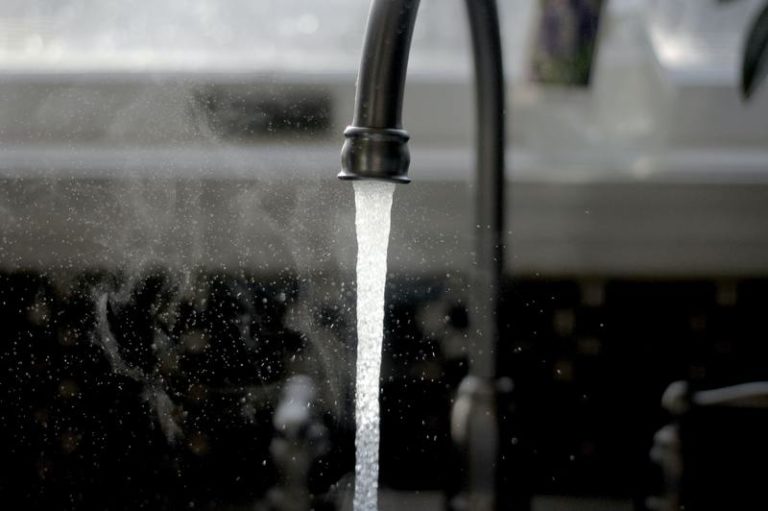 By following these simple steps, you can easily get rid of the mildew smell in your kitchen sink and prevent it from returning. Remember to regularly clean and maintain your sink to keep it fresh and free from musty odors. With a little effort, you can have a clean and pleasant-smelling kitchen sink in no time.
By following these simple steps, you can easily get rid of the mildew smell in your kitchen sink and prevent it from returning. Remember to regularly clean and maintain your sink to keep it fresh and free from musty odors. With a little effort, you can have a clean and pleasant-smelling kitchen sink in no time.





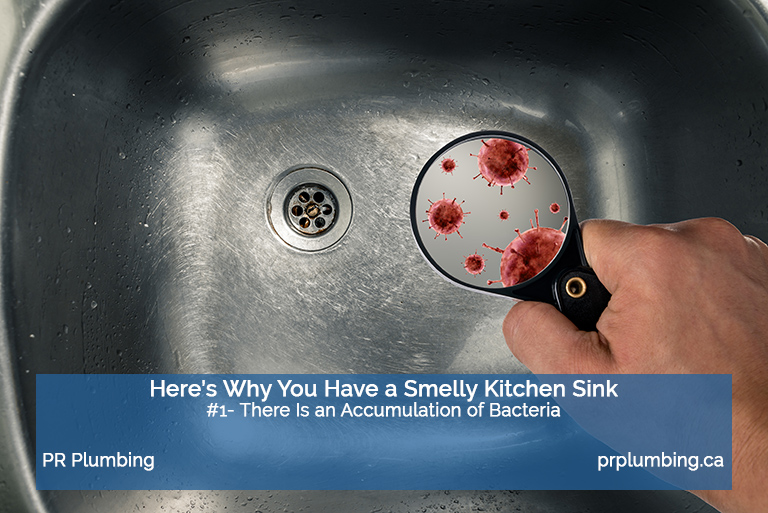
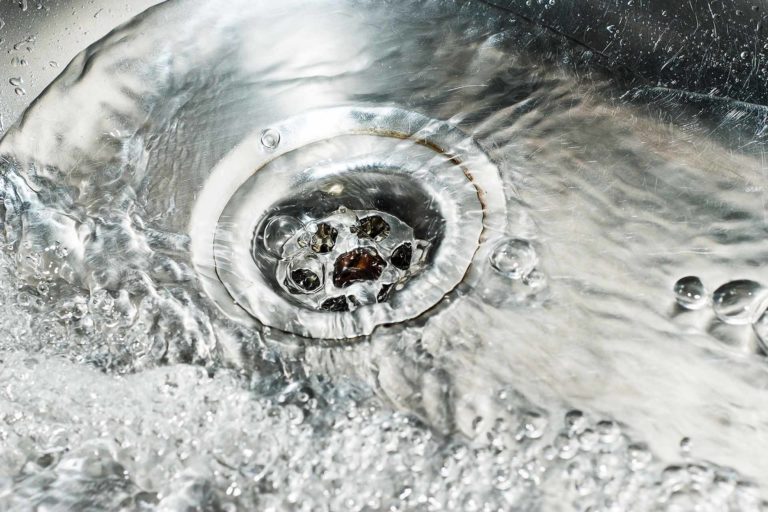
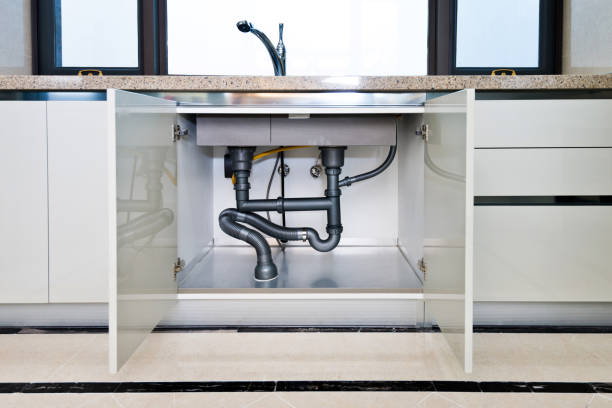
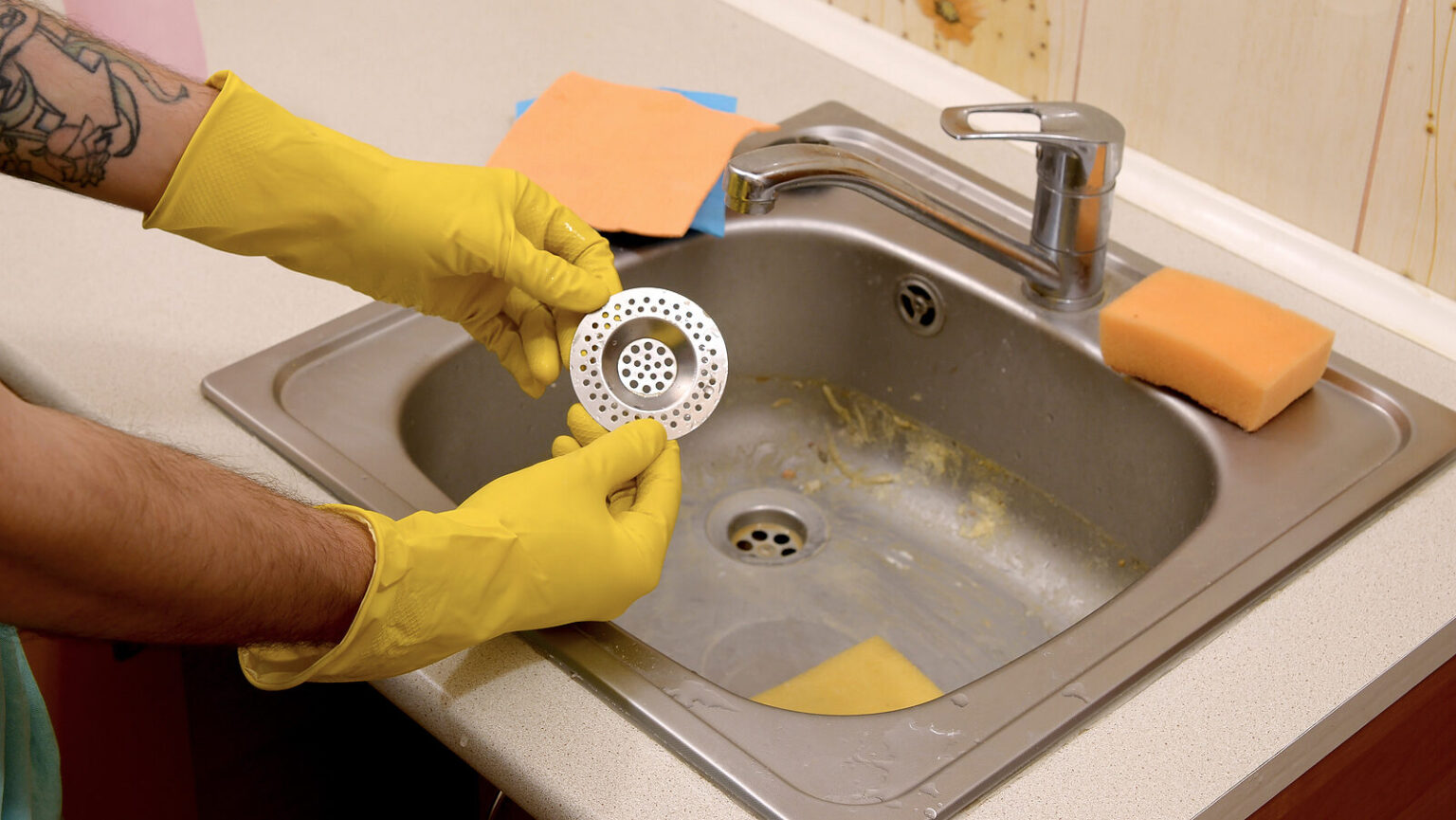





.png)



